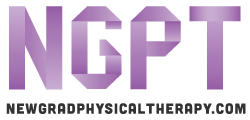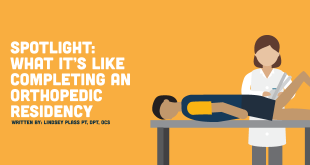Why Mentorship Matters in Physical Therapy
A great mentor in physical therapy can be your guiding star, helping you navigate the complexities of patient care, professional development, and career advancement. Mentors offer insights that books and courses can't provide, drawing from their own rich experiences to give you real-world advice.
Benefits of Having a Mentor in Physical Therapy
- Professional Growth: Learn advanced techniques and best practices.
- Personal Development: Gain confidence and improve interpersonal skills.
- Networking Opportunities: Connect with industry leaders and peers.
- Career Guidance: Receive advice on career paths and specialization.
Key Traits of a Great Physical Therapy Mentor
- Experience: A seasoned professional with a solid track record.
- Approachability: Someone who is easy to talk to and ask questions.
- Patience: Willing to take the time to teach and guide.
- Commitment: Dedicated to helping you grow and succeed.
How to Find a Great Physical Therapy Mentor
Exploring Professional Networks
Networking is a powerful tool in finding a great physical therapy mentor. Attend industry conferences, join professional organizations, and participate in online forums. Platforms like LinkedIn can be invaluable for connecting with potential mentors.
Leveraging Social Media and Online Communities
Social media platforms like Twitter and Facebook, along with specialized forums like Reddit's physical therapy subreddit, can help you find and connect with mentors. Engage in conversations, ask questions, and share your interests and goals.
Asking for Recommendations
Don't hesitate to ask your colleagues, professors, or employers for mentor recommendations. People in your professional circle can often point you toward respected and approachable mentors in the field.
Building a Relationship with Your Mentor
Initiating Contact
When you identify a potential mentor, reach out with a polite and concise message. Introduce yourself, express your interest in their work, and explain why you are seeking their mentorship.
Setting Expectations
Clarify your goals and what you hope to achieve through the mentorship. Discuss the frequency of meetings, preferred communication methods, and any specific areas you want to focus on.
Maintaining the Mentorship Relationship
Stay proactive in maintaining regular contact. Share your progress, ask for feedback, and be open to advice. Show appreciation for their time and efforts, which reinforces a positive and productive relationship.
How to Find a Great Physical Therapy Mentor
Question 1: What Qualities Should I Look for in a Physical Therapy Mentor?
A great mentor in physical therapy should possess a combination of professional excellence, interpersonal skills, and a genuine interest in your development. Here are key qualities to consider:
- Professional Expertise: Look for someone with extensive experience and a strong professional reputation.
- Communication Skills: A mentor should be a clear communicator who can explain complex concepts in an understandable way.
- Empathy and Understanding: They should be empathetic and capable of providing support and encouragement.
- Availability: Ensure they have the time and willingness to commit to your mentorship.
- Adaptability: A good mentor can tailor their advice to suit your specific needs and learning style.
How to Find a Great Physical Therapy Mentor
Question 2: How Can I Approach Potential Mentors Without Feeling Intimidated?
Approaching potential mentors can be daunting, but with the right approach, you can make a positive impression. Here are some tips to help you:
- Research Thoroughly: Learn about their background and achievements to show genuine interest.
- Be Respectful: Approach them with respect and professionalism.
- Be Clear and Concise: Clearly state why you are reaching out and what you hope to gain from the mentorship.
- Express Gratitude: Thank them for their time and consideration, regardless of their response.
- Follow Up: If you don't receive an immediate response, follow up politely after a reasonable period.
How to Find a Great Physical Therapy Mentor
Question 3: What Are the Best Ways to Connect with Potential Mentors Online?
Connecting with potential mentors online can expand your network significantly. Here are some effective strategies:
- Join Professional Networks: Participate in platforms like LinkedIn and professional physical therapy associations.
- Engage in Online Forums: Join discussions on forums such as Reddit or specialized physical therapy groups.
- Attend Webinars and Virtual Events: Participate in online events where industry experts share their insights.
- Use Social Media: Follow and interact with potential mentors on Twitter, Facebook, and Instagram.
- Create a Professional Profile: Maintain an updated and professional online presence.
How to Find a Great Physical Therapy Mentor
Question 4: How Can I Make the Most of My Mentorship Experience?
To maximize the benefits of your mentorship, consider these strategies:
- Set Clear Goals: Define what you want to achieve from the mentorship.
- Be Prepared: Come to meetings with questions and topics to discuss.
- Stay Open to Feedback: Be receptive to constructive criticism and advice.
- Take Initiative: Actively seek opportunities to learn and grow.
- Express Appreciation: Regularly thank your mentor for their guidance and support.
How to Find a Great Physical Therapy Mentor
Question 5: What Questions Should I Ask a Potential Mentor?
Asking the right questions can help you gauge whether a potential mentor is a good fit. Here are some to consider:
- **What inspired you to pursue a career in physical therapy?
- **What do you consider your greatest professional achievement?
- **How do you handle difficult cases or patients?
- **What are your thoughts on the latest trends in physical therapy?
- **How do you balance work and personal life?
How to Find a Great Physical Therapy Mentor
Question 6: How Do I Evaluate the Success of My Mentorship?
Evaluating the success of your mentorship involves assessing your progress and the quality of the relationship. Consider these factors:
- Personal Growth: Have you gained new skills or knowledge?
- Professional Development: Have you achieved your career goals?
- Satisfaction: Do you feel satisfied with the guidance you are receiving?
- Feedback: Are you receiving constructive and actionable feedback?
- Engagement: Are both you and your mentor actively participating in the relationship?
How to Find a Great Physical Therapy Mentor
Question 7: Can a Peer Be a Mentor in Physical Therapy?
While traditional mentorship involves a more experienced professional guiding a less experienced one, peer mentorship can also be beneficial. Here’s how:
- Mutual Support: Peers can offer support and encouragement.
- Shared Experiences: They can relate to your challenges and successes.
- Collaborative Learning: Peers can learn from each other’s insights and perspectives.
- Networking: Peer mentorship can expand your professional network.
- Flexibility: It can be more flexible and informal compared to traditional mentorship.
How to Find a Great Physical Therapy Mentor
Question 8: What Resources Can Help Me Find a Great Physical Therapy Mentor?
Several resources can assist you in finding a great physical therapy mentor:
- Professional Associations: Organizations like the American Physical Therapy Association (APTA) offer mentorship programs.
- Educational Institutions: Universities and colleges often have mentorship programs for students and alumni.
- Online Platforms: Websites like LinkedIn and specialized forums can connect you with potential mentors.
- Industry Conferences: Networking events and conferences are excellent for meeting experienced professionals.
- Local Clinics and Hospitals: Reach out to physical therapy departments in your area.
How to Find a Great Physical Therapy Mentor
Question 9: How Important Is Formal Education in Choosing a Mentor?
While formal education is important, it’s not the only factor to consider. Here are other aspects to weigh:
- Experience: Practical experience can often be more valuable than formal education.
- Skills and Expertise: Look for specific skills and expertise that align with your goals.
- Reputation: A mentor’s professional reputation can indicate their ability to provide valuable guidance.
- Personal Fit: Ensure the mentor’s communication style and personality are a good match for you.
- Availability: Consider their willingness and ability to commit time to the mentorship.
How to Find a Great Physical Therapy Mentor
Question 10: What Should I Do If My Mentorship Isn’t Working Out?
If your mentorship isn’t meeting your expectations, it’s important to address the issue constructively:
- Communicate: Discuss your concerns openly with your mentor.
- Set New Goals: Re-evaluate and adjust your goals if necessary.
- Seek Feedback: Ask for feedback on how you can improve the relationship.
- Consider Alternatives: If issues persist, it may be time to seek a new mentor.
- Reflect: Use the experience to learn about what you need from a mentor in the future.
 NewGradPhysicalTherapy.com The Largest Online Resource For New Grad Physical Therapists
NewGradPhysicalTherapy.com The Largest Online Resource For New Grad Physical Therapists






Great article, but I am confused on the wording stating it is a requirement for fellowships to first attend a residency.Can you please provide your source for the following:
“If you are considering becoming a Fellow of the American Academy of Orthopaedic Manual Physical Therapists (FAAOMPT), fellowship candidates are required to have completed an orthopaedic residency program and have obtained ABPTS board certification as an Orthopaedic Clinical Specialist.”
I don’t believe you are required to have attended a residency to become a Fellow, it is just one of the paths to get there. Per the AAOMPT website, eligibility criteria is:
*Minimum of one year of post- professional orthopaedic clinical experience with one of the following:
*1. APTA residency training, 2) board certified clinical specialist credential (e.g., OCS), or 3) equivalent of the above determined through portfolio review process.
If there have been updates to the requirement please share.
Hi Ryan,
Thank you for sharing your feedback. I understand where the content was a little misleading and I have made some edits.
You are correct, generally speaking, residency is not always a requirement to participate in a fellowship program. However, when specifically discussing the topic of post-residency careers paths, completing an orthopedic residency program and subsequently obtaining the OCS credential is the most widely accepted requirement across all the OMPT fellowship programs. As you mentioned, there are other pathways to OMPT fellowship including: (1)demonstrating a minimum years of experience (I’ve seen as many as 5 years), and/or (2) being a credentialed clinical specialist in a related area, and/or (3) completing a residency program in a related specialty area. Admissions requirements do vary by program, so readers are encouraged to seek information from each program of interest for more specifics regarding admissions requirements.
Thanks again for commenting and allowing me to clarify.